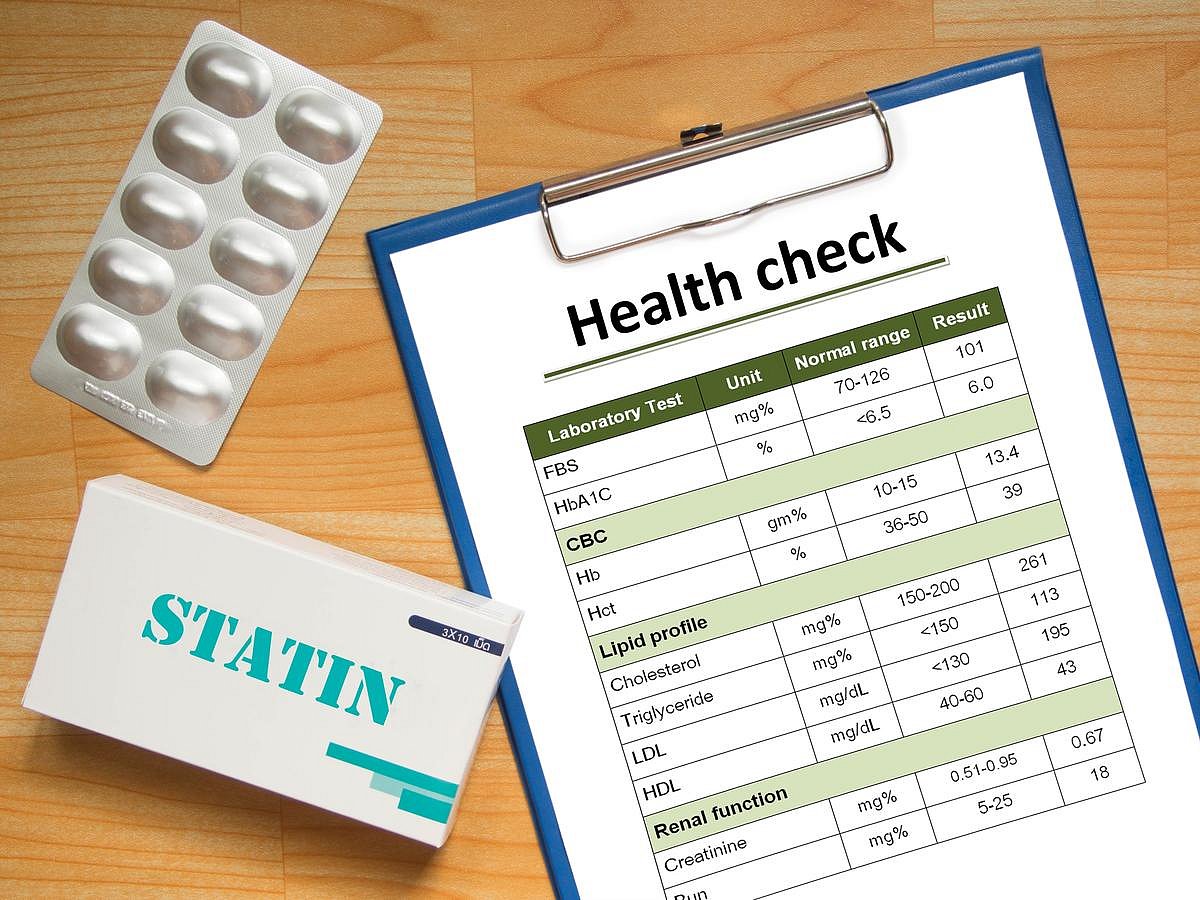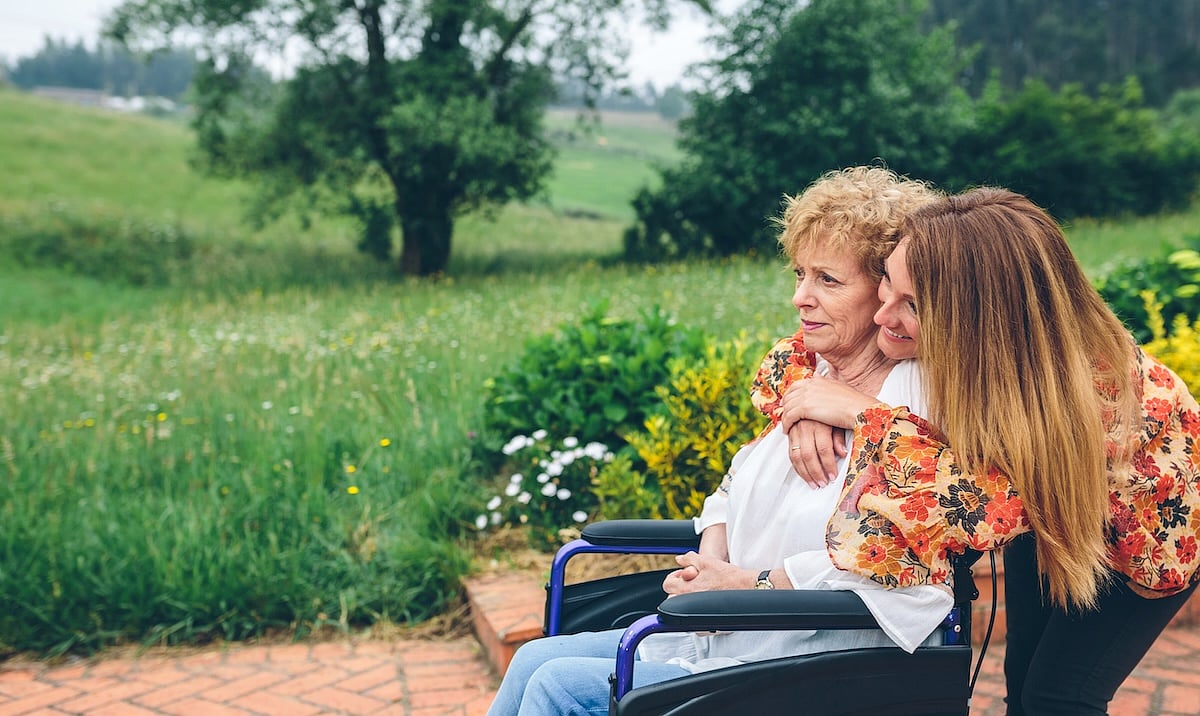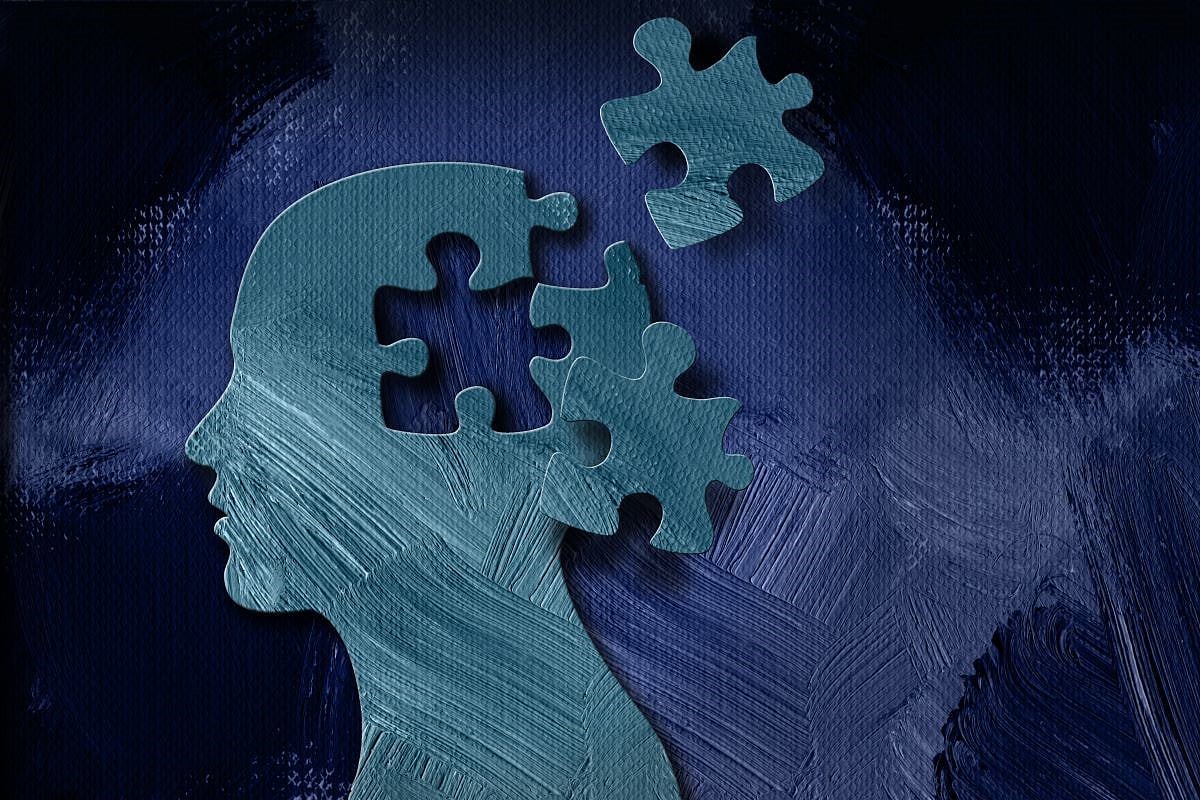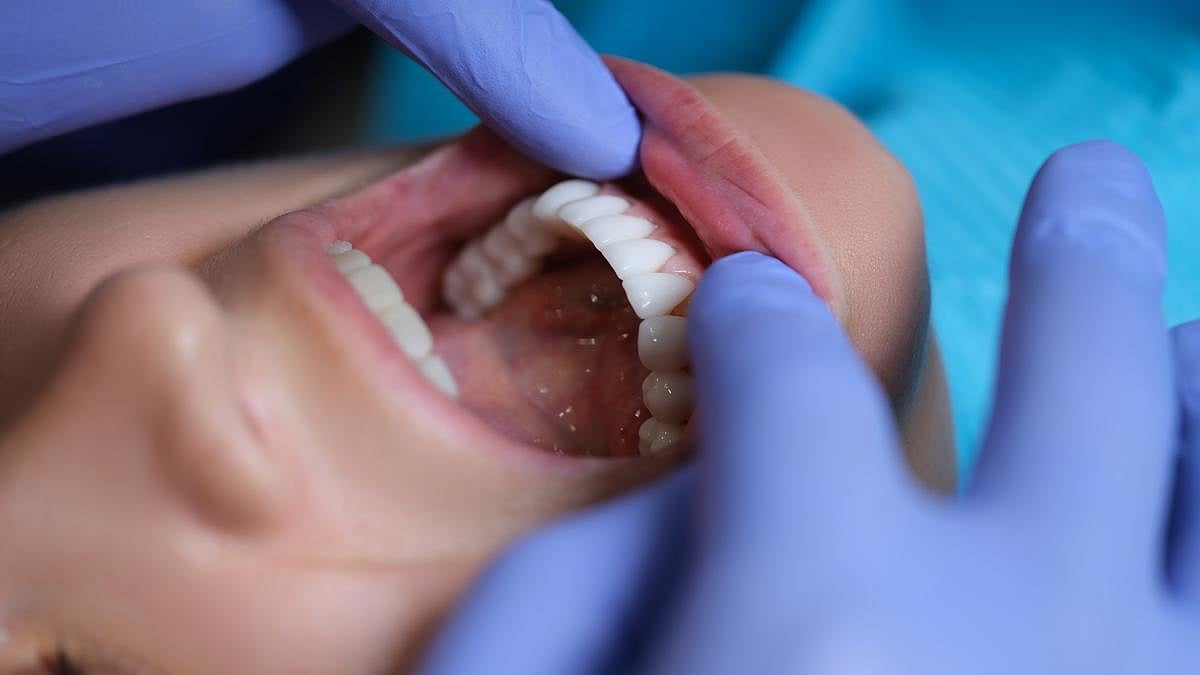Get Healthy!
423 Results for search "Dementia".
Health News Results - 423
A new AI tool can help doctors hone in on a patient’s particular type of dementia, including Alzheimer’s disease, a new study says.
The AI tool, StateViewer, helped researchers identify a person’s dementia type in 88% of cases, accord...
- Dennis Thompson HealthDay Reporter
- |
- July 1, 2025
- |
- Full Page
Your address might influence your risk for dementia, a new study says.
People living in poor neighborhoods appear to be more likely to have biological risk factors for inflammation and Alzheimer’s disease, researchers reported June 25 in the jour...
- Dennis Thompson HealthDay Reporter
- |
- June 30, 2025
- |
- Full Page
Caring for your emotional health might also help keep your memory sharp, a new study says.
People with higher levels of well-being have a reduced risk of memory loss in middle age, according to a new study published June 19 in the journal
People caring for people with dementia might face future risk with their own brain aging due to lifestyle factors, a new study says.
Nearly 3 in 5 dementia caregivers (59%) have at least one risk factor that increases their own chances of developing dementia over time, acco...
- Dennis Thompson HealthDay Reporter
- |
- June 17, 2025
- |
- Full Page
A person’s microbiome – the bacteria naturally living in the mouth and gut – might contribute to Parkinson’s disease, a new study says.
Specific changes in these bacteria are associated with cognitive decline in Parkinson’s, researchers reported June 9 in the journal Gut Microbes...
- Dennis Thompson HealthDay Reporter
- |
- June 13, 2025
- |
- Full Page
A hallmark of accelerated aging appears to be linked to an increased risk of dementia and stroke, a new study says.
Shorter telomere length in a person’s white blood cells is associated with the two brain diseases, researchers reported June 11 in the...
- Dennis Thompson HealthDay Reporter
- |
- June 12, 2025
- |
- Full Page
Want to reduce your risk of dementia and Alzheimer’s disease?
Get on your bike and ride, a new study recommends.
Biking regularly for transportation appears to lower risk of dementia by 19% and Alzheimer’s by 22%, according to results...
- Dennis Thompson HealthDay Reporter
- |
- June 11, 2025
- |
- Full Page
It’s never too late to start eating right as a means of protecting your brain health, a new study says.
People who improved their healthy eating in middle-age had a 25% lower risk of lower risk of dementia, compared to those whose diets got worse, according to finding...
- Dennis Thompson HealthDay Reporter
- |
- June 2, 2025
- |
- Full Page
Heart disease, strokes and diabetes contribute to many dementia cases in the United States, but the risk is not equal everywhere, a new study says.
Overall, more than a third (37%) of U.S. dementia cases are linked to eight conditions: diabetes, heart failure, atrial fibril...
- Dennis Thompson HealthDay Reporter
- |
- May 29, 2025
- |
- Full Page
Difficulty sleeping after a mild stroke could be a sign of continuing brain health problems in some people, a new study says.
Stroke victims who spent more time in bed struggling to sleep had lower scores on tests of thinking and memory skills, researchers reported in the journal Neurology.
These patie...
- Dennis Thompson HealthDay Reporter
- |
- May 29, 2025
- |
- Full Page
Sleep apnea could be costing you brain power and increasing your risk of dementia and Alzheimer’s disease, a new study...
- Dennis Thompson HealthDay Reporter
- |
- May 8, 2025
- |
- Full Page
People whose bodies are aging faster could be more likely to develop dementia than those with normal or slower aging, a new study says.
Folks with advanced biological age are about 30% more likely to develop dementia, compared to those whose bodies have aged closer to how long they&rsquo...
- Dennis Thompson HealthDay Reporter
- |
- May 1, 2025
- |
- Full Page
People with autism do not appear to be at greater risk of age-related brain decline, a new study says.
Older people with autistic traits have no differences when it comes to spatial working memory, which helps folks remember and use information about where things are and how they are arranged, resea...
- Dennis Thompson HealthDay Reporter
- |
- April 29, 2025
- |
- Full Page
Risk factors for dementia could start taking their toll as early as a person’s 20s and 30s, a new study says.
Younger adults who carry known risks for dementia performed worse on memory and thinking tests between ages 24 and 44, researchers report in the May issue of the journal The Lancet: Regional He...
- Dennis Thompson HealthDay Reporter
- |
- April 25, 2025
- |
- Full Page
Singing can be a balm for the soul, but does it still soothe if a person is singing alone in a virtual crowd?
Yes, says a pandemic-era study that tested whether seniors received any emotional or mental benefit from participating in a virtual choir during COVID-19 lockdowns.
Isolated seniors sai...
- Dennis Thompson HealthDay Reporter
- |
- April 24, 2025
- |
- Full Page
Early menopause could be a warning sign for future age-related brain decline, a new study says.
Women who entered menopause before 40 had a greater cognitive decline than women who entered menopause after 50, according to a study published recently in the journal
- Dennis Thompson HealthDay Reporter
- |
- April 23, 2025
- |
- Full Page
Middle-aged folks and seniors whose weed use lands them in the hospital are at higher risk for developing dementia within a matter of years, a new study says.
An ER visit or hospitalization due to cannabis use is associated with a 72% increased risk of a dementia diagnosis within five ye...
- Dennis Thompson HealthDay Reporter
- |
- April 16, 2025
- |
- Full Page
It’s a common notion that overuse of smartphones, tablets, laptops and other digital devices is rotting people’s minds.
But the opposite appears to be true – regular use of digital technology seems to protect the brain against decline and dementia, at leas...
- Dennis Thompson HealthDay Reporter
- |
- April 15, 2025
- |
- Full Page
From slurping daily spoonfuls of fish oil to giving up alcohol, lifting weights and playing word games, older Americans think just about anything that might keep their brains sharp is worth a try.
After all, the risk of dementia -- a loss of memory, problem-solving and thinking abilities that often equals an end to independence -- rises sharply with age. By itself, the most common dementi...
- Carole Tanzer Miller HealthDay Reporter
- |
- April 12, 2025
- |
- Full Page
Air pollution might be harming the brains of seniors, increasing their risk of dementia and cognitive decline, a new study says.
Exposure to nitrogen dioxide and fine particle pollution is linked to lower scores in key thinking and memory skills, particularly language abili...
- Dennis Thompson HealthDay Reporter
- |
- April 10, 2025
- |
- Full Page
Heavy drinkers have an increased risk of developing brain lesions associated with memory and thinking problems, a new study says.
Folks who imbibe eight or more alcoholic drinks a week have an increased risk of hyaline arteriolosclerosis, or a thickening and narrowing of the small arteries that f...
- Dennis Thompson HealthDay Reporter
- |
- April 10, 2025
- |
- Full Page
Brain diseases like stroke, dementia and depression share common risk factors, and changing any can lower a person’s risk of all three conditions, a new study says.
Addressing factors as varied as blood pressure, blood sugar, cholesterol, physical ac...
- Dennis Thompson HealthDay Reporter
- |
- April 9, 2025
- |
- Full Page
An experimental blood test for Alzheimer’s disease not only can aid in its diagnosis but also indicate how far the brain condition has progressed, a new study says.
The test tracks levels of a protein called MTBR-tau243, which is linked to toxic tau tangles that build up in the brain as part of Alzheimer’s disease, researchers said in the journal
The shingles vaccine can do more than protect seniors from painful, blistering rashes.
It also appears to protect older folks from dementia, researchers say.
Seniors who got the shingles vaccine when it became available in the U.K. were 20% less li...
- Dennis Thompson HealthDay Reporter
- |
- April 2, 2025
- |
- Full Page
Lower levels of “bad” LDL cholesterol could mean a lower risk of dementia and Alzheimer’s disease, a new study says.
People with low-density lipoprotein (LDL) cholesterol levels lower than 70 mg/dl had a 26% lower risk of dementia and...
- Dennis Thompson HealthDay Reporter
- |
- April 2, 2025
- |
- Full Page
Heart disease might contribute to the sort of brain shrinkage seen in dementia, a new study says.
People with early signs of heart problems are more likely to have brain changes associated with dementia, researchers reported on March 26 in the journal
The nose might know whether a person is showing early signs of dementia or Alzheimer’s disease, a new study says.
Older adults who’ve developed mild cognitive impairment -- a precursor to dementia and Alzheimer’s -- score lower on a peel-and-sniff test than people with ...
- Dennis Thompson HealthDay Reporter
- |
- March 27, 2025
- |
- Full Page
HIV could explode worldwide in the wake of U.S. cuts to foreign aid, resulting in millions of AIDS deaths and soaring rates of infection, a new analysis says.
President Donald Trump has floated the notion of ending the President’s Emergency Fund for AIDS Relief (PEPFAR), a program created un...
- Dennis Thompson HealthDay Reporter
- |
- March 27, 2025
- |
- Full Page
The higher you fly, the harder you fall, the old saying goes.
There might be something to that when it comes to the aftermath of a stroke, a new study suggests.
People with higher education face a steeper decline in their ability to plan, organize an...
- Dennis Thompson HealthDay Reporter
- |
- March 27, 2025
- |
- Full Page
A portable system powered by artificial intelligence (AI) can help detect early signs of brain decline, potentially offering up a red flag for people at risk of dementia or Alzheimer’s disease, researchers said.
The test looks at specific aspects...
- Dennis Thompson HealthDay Reporter
- |
- March 21, 2025
- |
- Full Page
Drowsy during the daytime?
For seniors, such sleepiness could indicate that they’re at increased risk for dementia, a new study suggests.
Women in their 80s had double risk of dementia if they experienced increasing daytime sleepiness over a five-year period, researchers reported in the journal Neuro...
- Dennis Thompson HealthDay Reporter
- |
- March 21, 2025
- |
- Full Page
Dancing is known to lift the spirit, and a new study shows that Alzheimer’s disease patients respond to the rhythmic moves as well.
Dance classes eased agitation in a small group of people with Alzheimer’s disease and other related dementia...
- Dennis Thompson HealthDay Reporter
- |
- March 20, 2025
- |
- Full Page
Microplastics that invade and burrow deep within the human body are becoming an increasing concern among doctors and health experts.
Now, a new study shows that even medical care is causing increased exposure to the tiny plastic particles.
Microplastics can be found in the solutions administered through plastic IV bags, researchers recently reported in the journal
Music therapy can help lift the spirits and ease depression in people with dementia, a new evidence review has found.
Findings suggest that music-based therapy probably improves depressive symptoms and might even improve behavioral issues by the end of treatment, researcher...
- Dennis Thompson HealthDay Reporter
- |
- March 7, 2025
- |
- Full Page
Hot flashes, night sweats and other symptoms of a difficult menopause could be early warning flags for dementia, a new study suggests.
Women who exhibit more menopause symptoms are more likely to develop early signs of dementia like decreased mental function and mil...
- Dennis Thompson HealthDay Reporter
- |
- March 6, 2025
- |
- Full Page
Moving your body helps your brain, a new study suggests.
Folks who regularly exercise have better mental and brain health, researchers will report in early April at the annual meeting of the American Academy of Neurology in San Diego and online.
Moderate to vigorous physical activity reduces risk of dementia, s...
- Dennis Thompson HealthDay Reporter
- |
- February 28, 2025
- |
- Full Page
Microplastics could be affecting the brain health of people living in coastal areas, a new study says.
Marine microplastics -- microscopic plastic fragments smaller than 5 millimeters -- are associated with disabilities of memory, thinking and mobility, according to findings to be presented in April at a meeting of the American Academy of Neurology in San Diego.
People living in coa...
- Dennis Thompson HealthDay Reporter
- |
- February 27, 2025
- |
- Full Page
TUESDAY, Feb. 25, 2025 (HealthDay news) -- Antidepressants are frequently prescribed to people with dementia for symptoms like anxiety, depression, aggressiveness and sleeplessness.
But a specific class of antidepressant medications -- selective serotonin reuptake inhibitor...
- Dennis Thompson HealthDay Reporter
- |
- February 25, 2025
- |
- Full Page
Love doesn't fade when one member of a family develops Alzheimer's disease, but times of intimacy like Valentine's Day can become tougher.
Experts at the Alzheimer's Foundation of America (AFA) acknowledge that a loved one living with dementia can have trouble expressing their feelings or remembering things as they did in the past.
However, if partners and families follow the ...
- Ernie Mundell HealthDay Reporter
- |
- February 13, 2025
- |
- Full Page
Seniors whose cholesterol levels spike and plummet year-to-year could be at increased risk of dementia and failing brain health, a new study suggests.
Those whose cholesterol fluctuated the most had a 60% increased risk of dementia, researchers report in findings published ...
- Dennis Thompson HealthDay Reporter
- |
- January 30, 2025
- |
- Full Page
Maintaining tight control over blood pressure for even a short while can provide lasting benefits for seniors’ brain health, a new clinical trial says.
People had lower risk of mild cognitive impairment or dementia after keeping their blood pressure around 120 systolic for three and a half ...
- Dennis Thompson HealthDay Reporter
- |
- January 27, 2025
- |
- Full Page
Preventing or treating infections could be a key means of warding off dementia, a new evidence review says.
Vaccines, antibiotics, antiviral medications and anti-inflammatory drugs are all associated with a reduced risk of dementia, researchers reported in a study published Jan. 21 i...
- Dennis Thompson HealthDay Reporter
- |
- January 23, 2025
- |
- Full Page
Many elderly people and their caregivers don’t know a doctor has diagnosed them with dementia.
More than three-quarters of patients with dementia were not aware of their diagnosis, according to results recently published in the Journal of General Internal Medicine.
It’s not because the pe...
- Dennis Thompson HealthDay Reporter
- |
- January 21, 2025
- |
- Full Page
Artificial intelligence might be able to more quickly and affordably identify menopausal women who are having problems with memory or cognition.
AI effectively identified women with severe subjective cognitive decline (SCD), or self-perceived confusion or memory problems, researchers report in a new study published Jan. 14 in the journal
Steak, hamburgers, beef ribs and hot dogs are bad for the aging brain.
Folks who eat lots of red and processed meat are more likely to develop dementia, researchers reported.
Eating more than one serving of red meat a day -- 3 ounces, about the size of a bar of soap -- is associated with a 16% increased risk of cognitive decline, researchers found.
And eating more than a daily...
- Dennis Thompson HealthDay Reporter
- |
- January 16, 2025
- |
- Full Page
U.S. teenagers still struggle to make healthy choices when it comes to diet, exercise and sleep, a new Centers for Disease Control and Prevention report says.
Specifically, the percentage of students eating healthy, exercising regularly, and getting at least 8 hours of sleep was lower in 2023 than in 2013.
“Overall, U.S. high school students did not engage in adequate levels o...
- Dennis Thompson HealthDay Reporter
- |
- January 16, 2025
- |
- Full Page
Seniors’ risk of dementia is more than double what was previously thought.
The risk of developing dementia after age 55 is more than 42% among Americans, researchers reported in a study published Jan. 13 in the journal Nature Medicine.
That’s more than twice the risk reported by older studies.
<...- Dennis Thompson HealthDay Reporter
- |
- January 14, 2025
- |
- Full Page
Gum disease appears to disrupt brain activity, potentially increasing a person’s risk of cognitive decline.
People with gum disease experienced altered connections between different brain regions, compared to folks with good dental health, MRI scans show in a new study.
“These differences suggest that periodontitis may negatively affect brain function even in norma...
- Dennis Thompson HealthDay Reporter
- |
- January 13, 2025
- |
- Full Page
The clock is running for people who’ve been diagnosed with dementia, but the time they have left depends on their age.
Average life expectancy for people with dementia is largely based on their age at diagnosis, researchers found in a new evidence review.
Dementia reduces life expectancy by about 2 years for those diagnosed at age 85, 3 to 4 years for those diagnosed at 80, an...
- Dennis Thompson HealthDay Reporter
- |
- January 10, 2025
- |
- Full Page

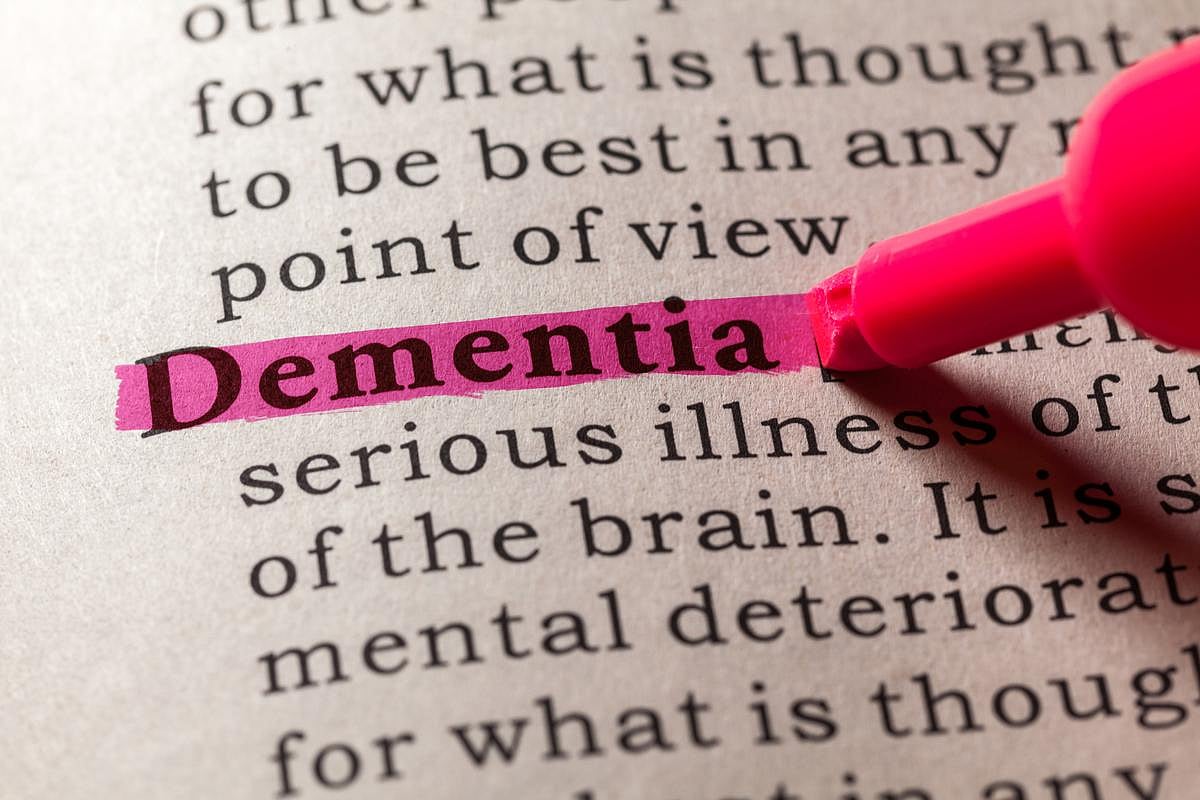









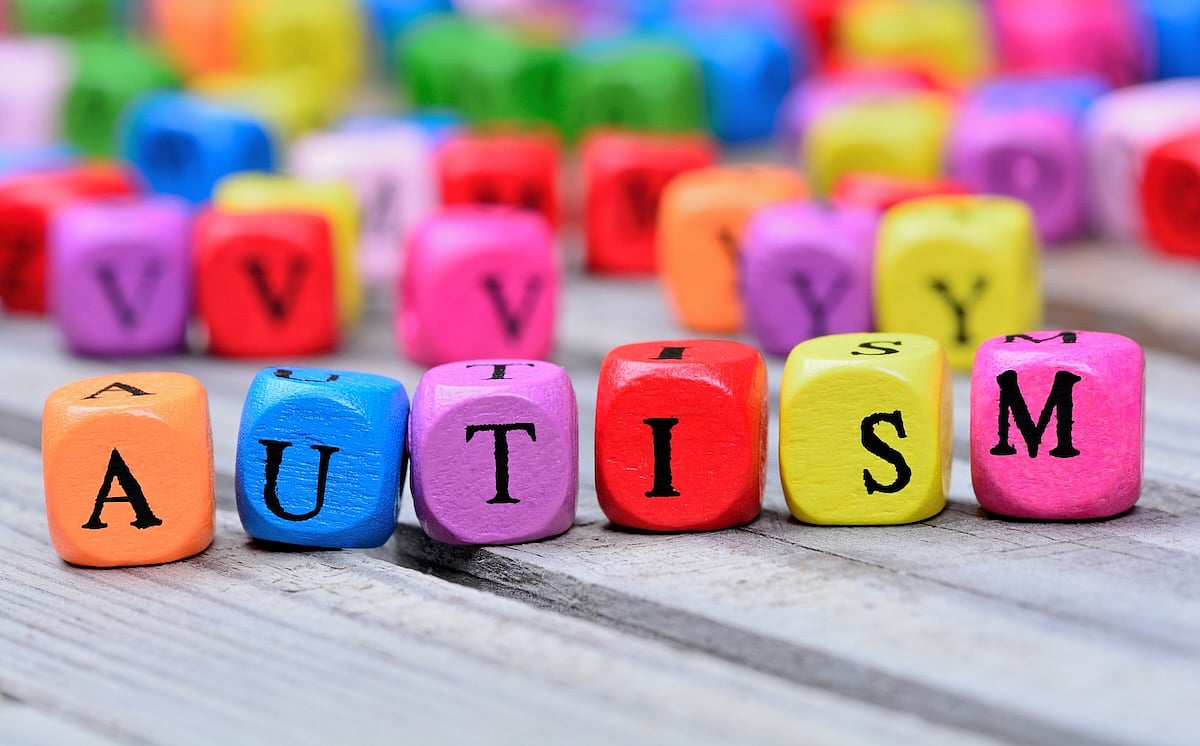








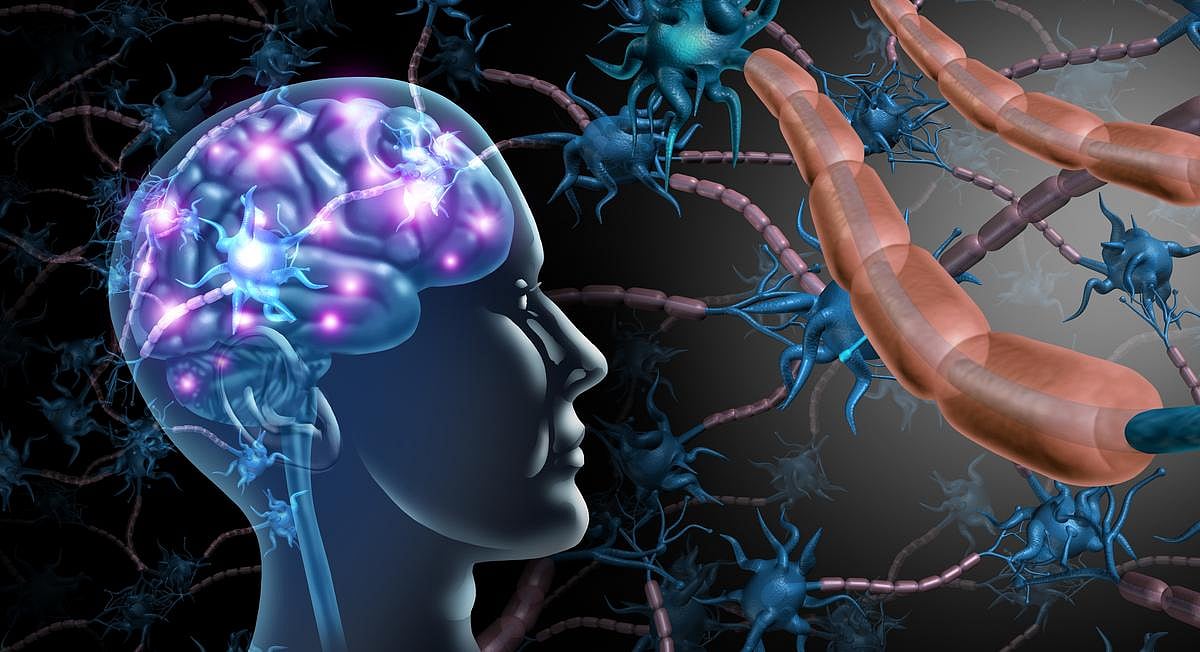
.jpg?w=1920&h=1080&mode=crop&crop=focalpoint)

